38 nutritional labels on food are based on a diet of
310 Nutrition | Diet, Weight Loss, and Meal Replacement Shakes Exercise and proper diet are necessary to achieve and maintain healthy weight loss. For questions regarding use of any meal replacement product or supplement, consult your physician. In addition, always consult your physician before beginning any weight loss program because a change in diet or exercise may affect certain medical conditions or ... How to Read Food Labels for a Heart-Healthy Diet The correct answer is A 2,000-calorie-a-day diet. The percent daily value numbers on a Nutrition Facts label are based on a 2,000-calorie diet. You may need to eat more or fewer calories and nutrients depending on your size, health status, health goals and doctor's recommendation.
Using the Nutrition Facts Label: For Older Adults | FDA The following key terms are intended to make it easier for you to use the Nutrition Facts labels to make informed food choices. ... *Based on a 2,000-calorie daily diet. Get Less of These Nutrients: Saturated Fat, Sodium, and Added Sugars. Most older adults get too much of these nutrients. More often, compare and choose foods to get less of ...
Nutritional labels on food are based on a diet of
Your Guide to the New Food Label | National Kidney Foundation The Nutrition Facts Label helps you understand the nutrients a food product contains, and the Nutrition Facts Table lists all the items required by the law. Food labels have percent daily values listed for a set group of nutrients based on the Food and Drug Administration (FDA) recommended 2000 calorie diet. Learn How the Nutrition Facts Label Can Help You Improve Your Health The Nutrition Facts label on packaged foods is based on updated science and dietary recommendations for Americans. Using the label can help you choose foods for a healthy diet. The label is required on all packaged foods made in the United States and imported from other countries. Vegan, Plant-Based, or… What Label Works? - Center for Nutrition Studies Vegan and Whole food, plant-based (WFPB) are the terms most widely used. But for many people, which phrase to choose isn't so simple. "I use vegan, but it can be a problem because many people infuse their own meaning into the term," explains registered dietitian Jack Norris, RD, the executive director of Vegan Outreach. The group has distributed 14 million pamphlets on college campuses ...
Nutritional labels on food are based on a diet of. Food Labels 101: Understanding the Nutrition Facts Label Nutrition labels are based on a daily 2,000 calorie diet. Depending on your age, gender and activity level, you may need to consume more or less than 2,000 calories per day, so keep this in mind when viewing each label. Now let's take a look at the parts of the nutrition facts label and break it all down. Anatomy of a Nutrition Facts Label FDA updates definition of 'healthy' for food labels - UPI.com The FDA first defined "healthy" back in 1994, but based the criteria for the term's use solely on individual nutrients contained in each particular food product, the agency's new proposal states. The Effects of Nutrition Knowledge on Food Label Use: A Review of the ... diet-disease, nutrition principles, food nutrient density: 11: Blaylock et al., 1999 ... Barreiro-Hurle et al. (2008) examined food choice based on food label characteristics including nutrition labels and claims. They found that nutrition knowledge was higher among those who primarily used nutrition labels, relative to those who used claims ... Food Labels | CDC - Centers for Disease Control and Prevention If you eat the whole thing, you are eating 8 times the amount of calories, carbs, fat, etc., shown on the label. Total Carbohydrate shows you types of carbs in the food, including sugar and fiber. Choose foods with more fiber, vitamins, and minerals. Choose foods with lower calories, saturated fat, sodium, and added sugars. Avoid trans fat.
How To Read Nutrition Labels - Mayo Clinic Diet 3. Check the % Daily Value. The % Daily Value (DV) tells you how much a nutrient in a serving of food contributes to a daily diet. 2,000 calories a day is used for general nutrition advice. Low is 5% or less. Aim for low in saturated fat, trans fat, cholesterol, sodium, and added sugars. High is 20% or more. Aim high in vitamins, minerals and ... Nutrition Flashcards | Quizlet The top portion of the nutrition label lists foods that we should limit in our daily diet. True The %DV listed on the nutrition label is based on a 3,000-calorie intake. False The Dietary Guidelines for Americans recommend most people consume fewer than ____ mg of sodium per day. 2,300 Food Labeling & Nutrition | FDA Food labeling is required for most prepared foods, such as breads, cereals, canned and frozen foods, snacks, desserts, drinks, etc. Nutrition labeling for raw produce (fruits and vegetables) and... Learn How to Read a Nutrition Label - MamaSezz These products are most definitely not whole food plant-based. Look for minimal ingredients and for ingredients that you recognize as real, whole food. 2. Sodium The American Heart Association recommends 2,300 mg of sodium a day (and they say 1,500 mg is even better). Some studies suggests we need as little as 125 mg a day.
How to Understand and Use the Nutrition Facts Label | FDA Dietary fiber, vitamin D, calcium, iron ad potassium are nutrients on the label that Americans generally do not get the recommended amount of. They are identified as nutrients to get more of.... How To Read A Food Nutrition Label: The Basics | Gobble For example, the USDA recommends that most people get 1,000 mg of calcium per day. So, if a serving of food contains 100 mg of calcium, this means the serving contains 10% Daily Value of calcium. The same applies to items on the food label you may want to avoid, like fat and cholesterol. For example, 15 grams is 20% Daily Value for total fat. This New Plant-Based Nutrition Textbook Aims To Educate Health ... The new book is available in print and ebook variations. By Amy Buxton. 27th September 2022. 4 Minutes Read. A new evidence-based textbook, aimed at health professionals, advocates for the role of plant-based nutrition in overall health, as well as the treatment and prevention of chronic disease. Aimed at students and qualified health ... Understanding Food Labels | The Nutrition Source | Harvard T.H. Chan ... Under the Food Allergen Labeling and Consumer Protection Act of 2004, eight major food allergens—milk, fish, tree nuts, peanuts, shellfish, wheat, eggs, and soybeans—are required to be listed in a "contains" statement near the Ingredients list if present in a food. An example would be "contains wheat, milk, and soy."
Understanding Food Nutrition Labels | American Heart Association Remember that the information shown in the label is based on a diet of 2,000 calories a day. You may need less or more than 2,000 calories depending upon your age, gender, activity level, and whether you're trying to lose, gain or maintain your weight.
Vegan, Plant-Based, or… What Label Works? - Center for Nutrition Studies Vegan and Whole food, plant-based (WFPB) are the terms most widely used. But for many people, which phrase to choose isn't so simple. "I use vegan, but it can be a problem because many people infuse their own meaning into the term," explains registered dietitian Jack Norris, RD, the executive director of Vegan Outreach. The group has distributed 14 million pamphlets on college campuses ...
Learn How the Nutrition Facts Label Can Help You Improve Your Health The Nutrition Facts label on packaged foods is based on updated science and dietary recommendations for Americans. Using the label can help you choose foods for a healthy diet. The label is required on all packaged foods made in the United States and imported from other countries.
Your Guide to the New Food Label | National Kidney Foundation The Nutrition Facts Label helps you understand the nutrients a food product contains, and the Nutrition Facts Table lists all the items required by the law. Food labels have percent daily values listed for a set group of nutrients based on the Food and Drug Administration (FDA) recommended 2000 calorie diet.
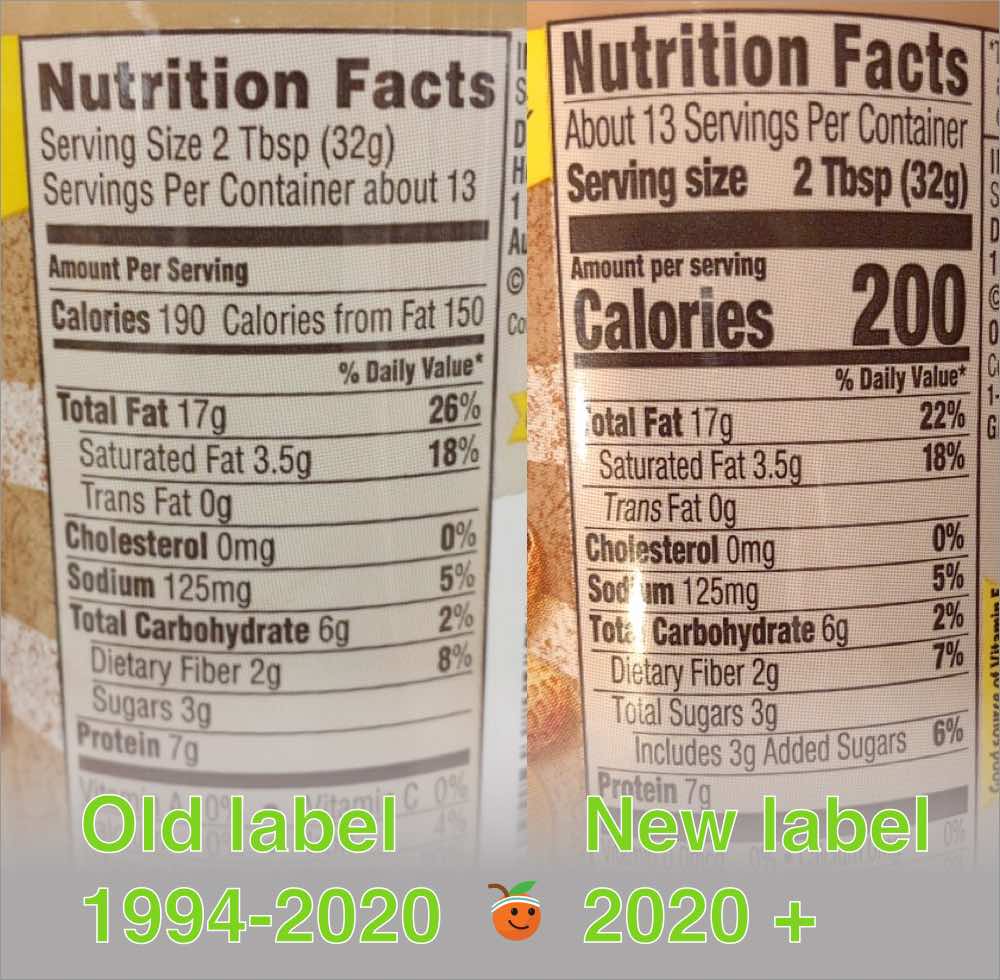
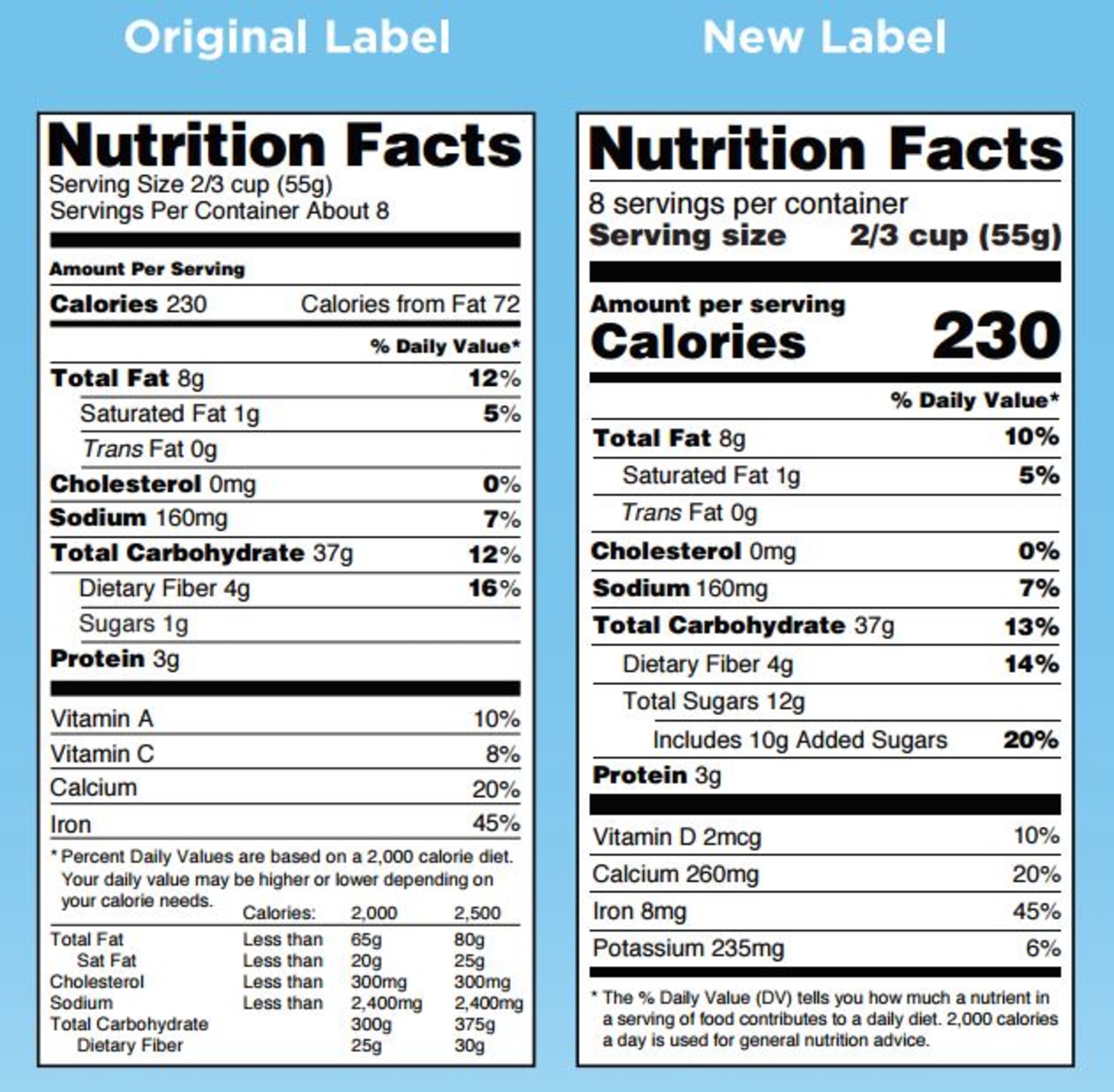

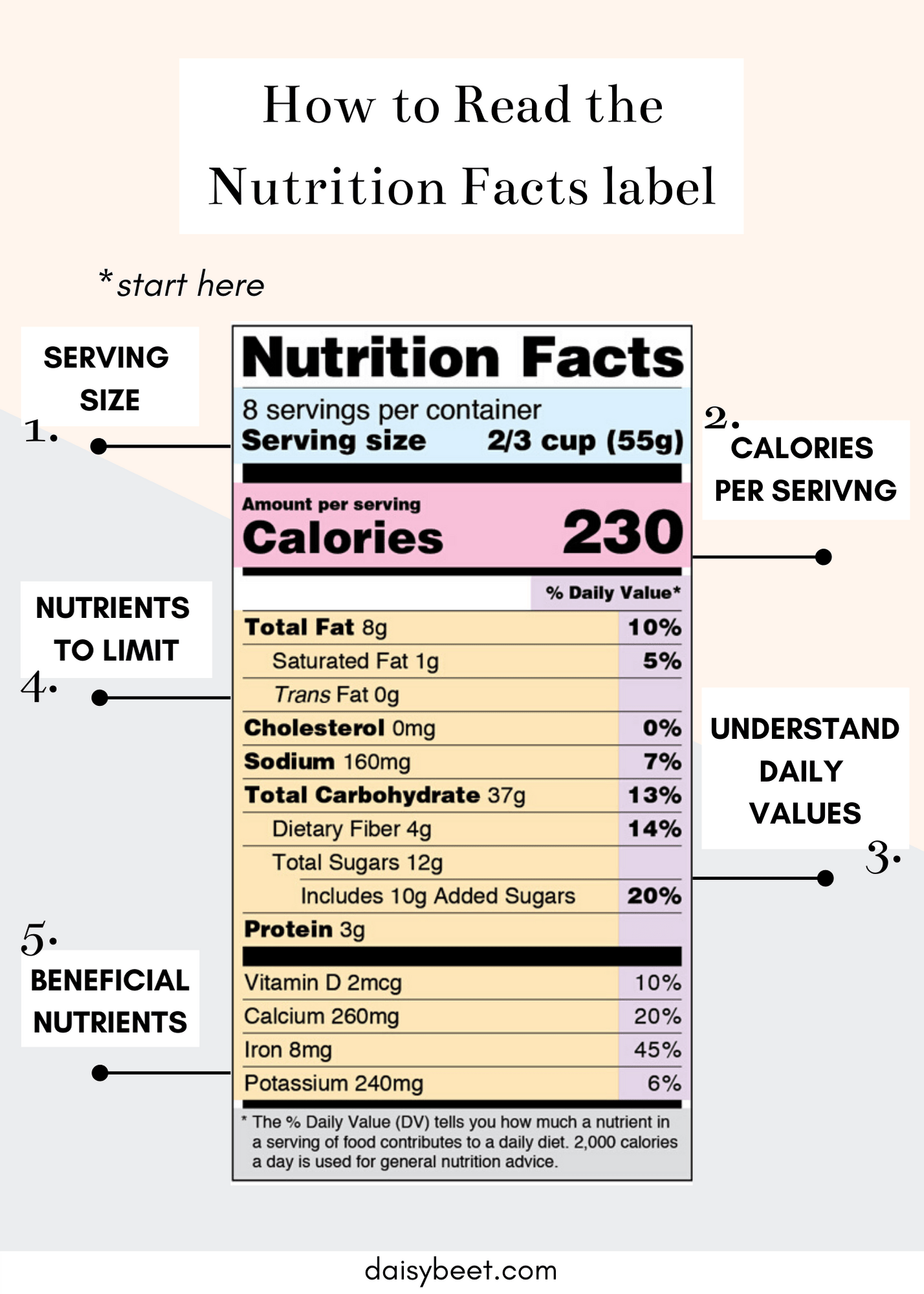

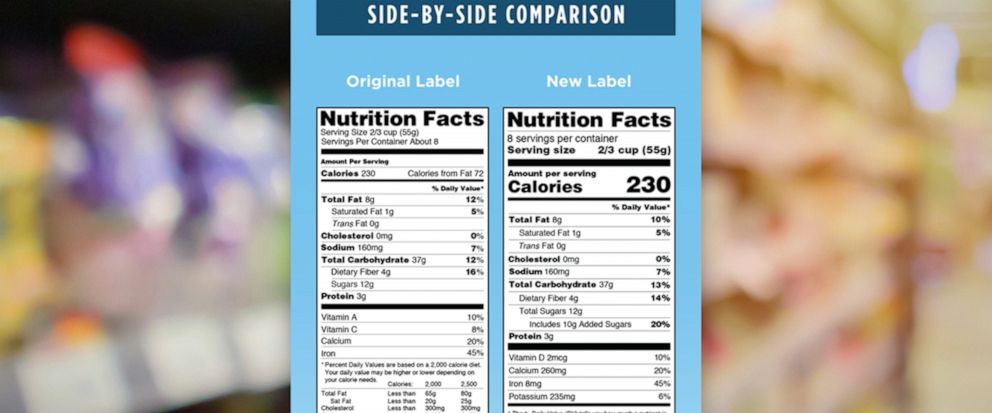
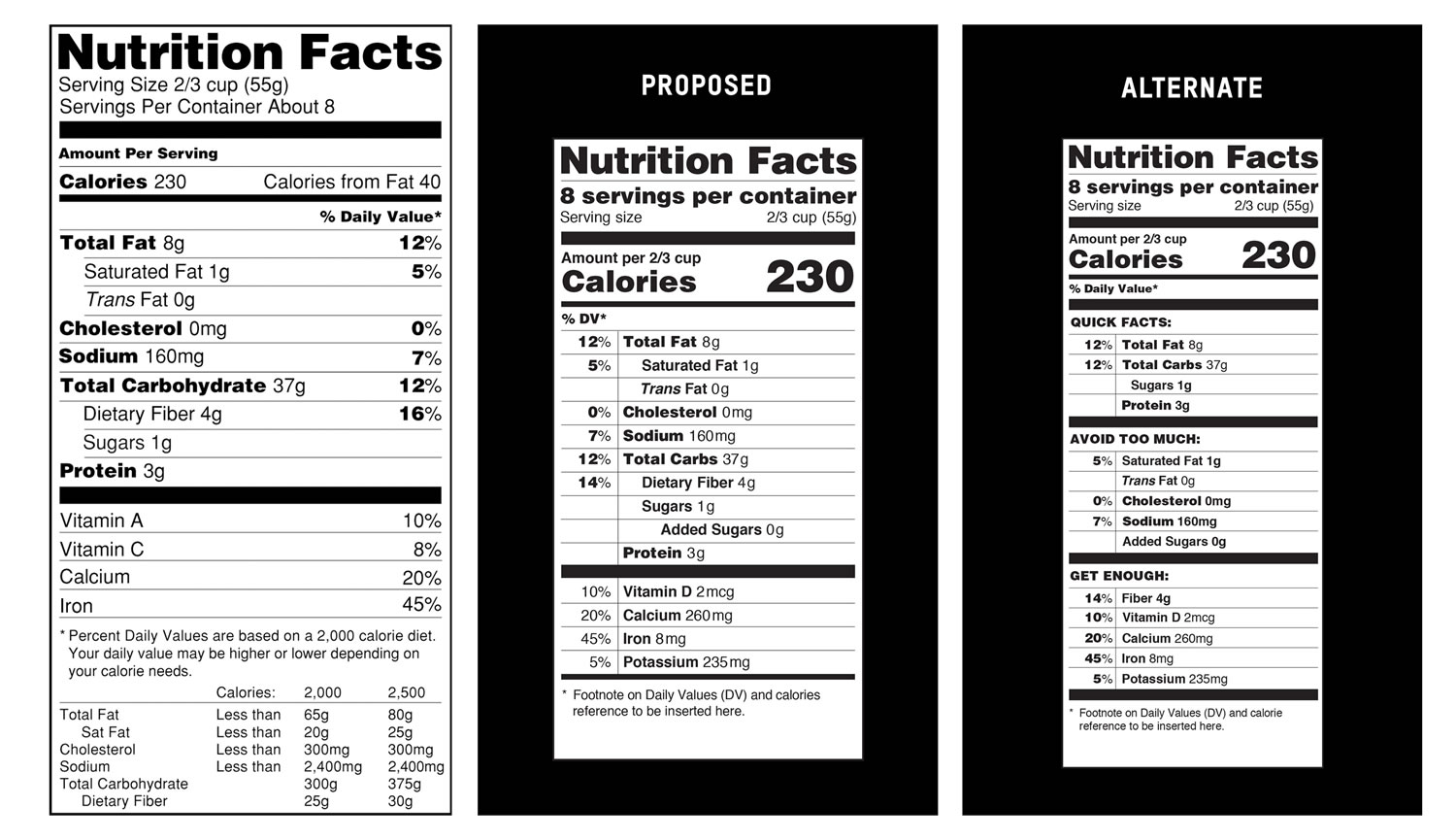
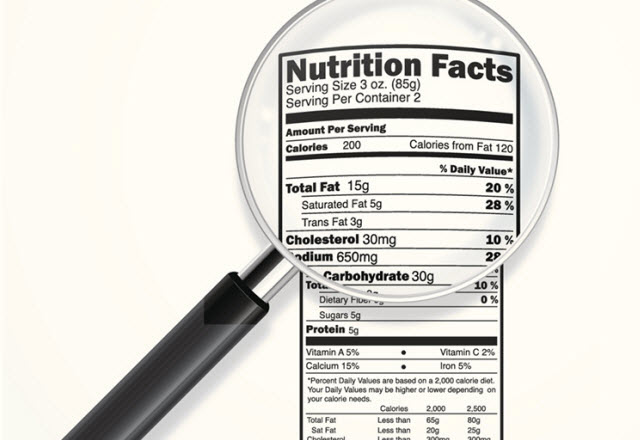
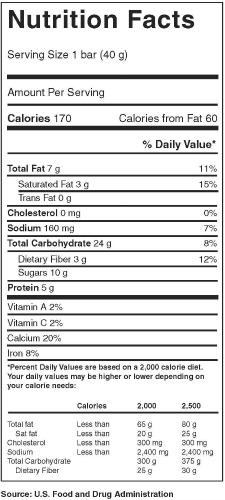
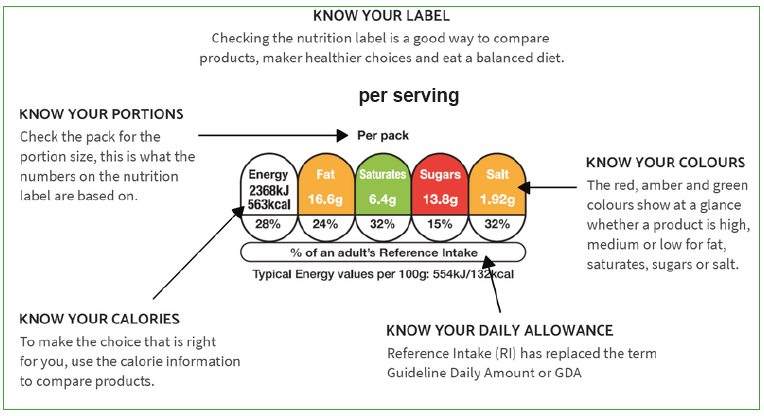

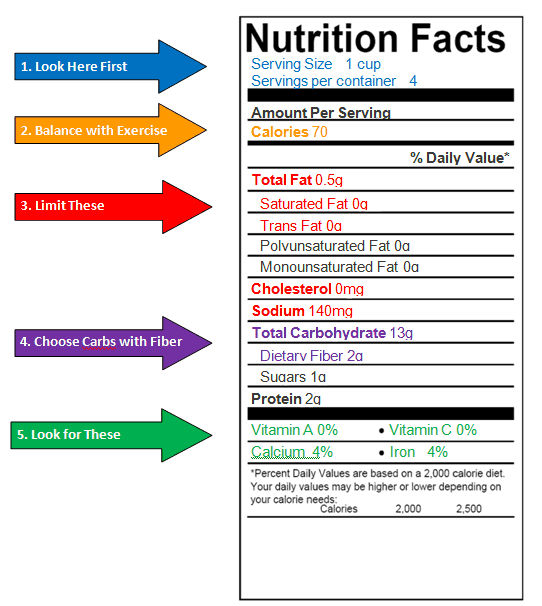
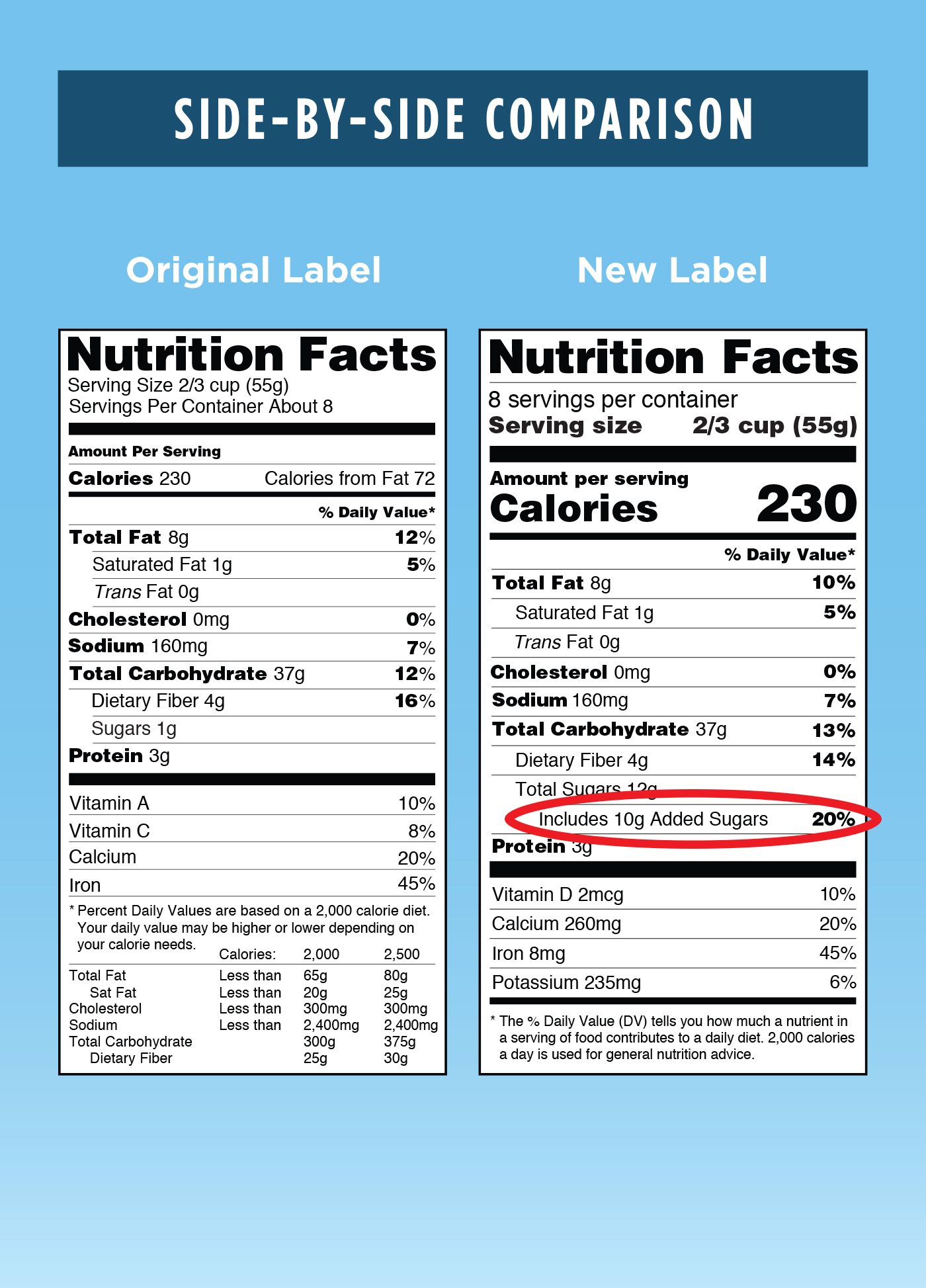
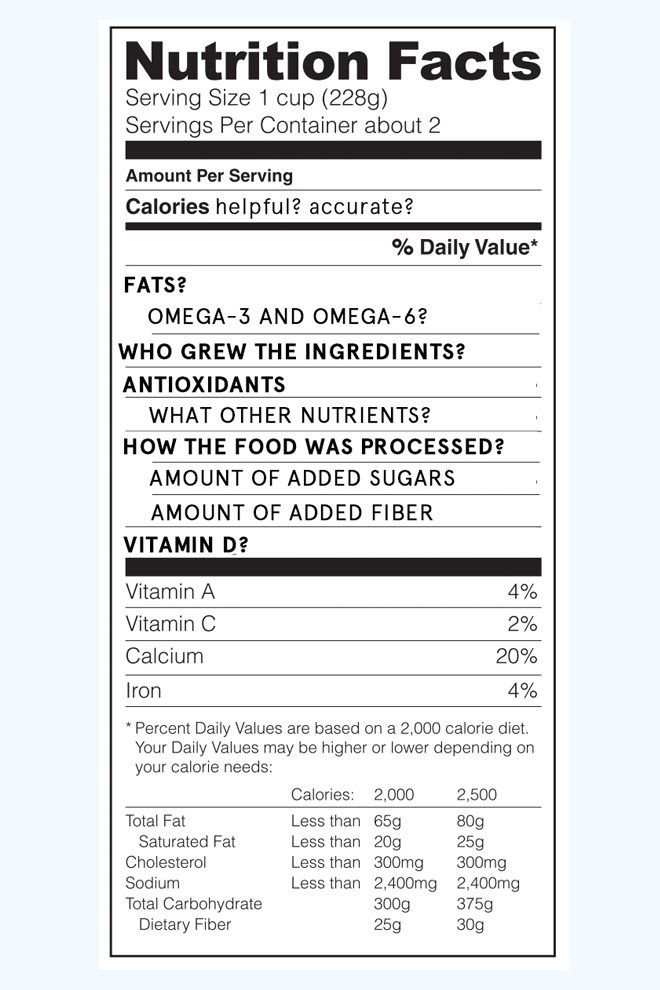

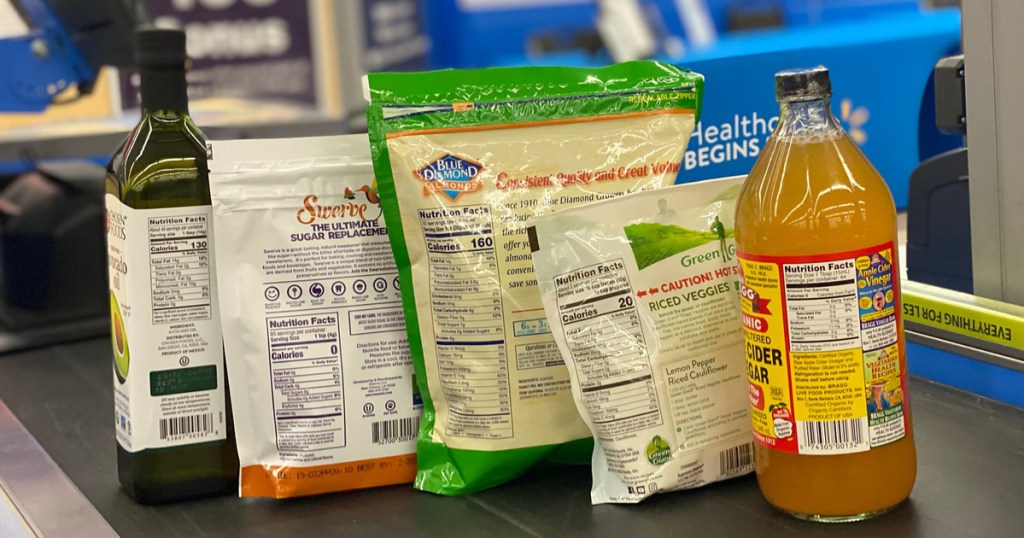
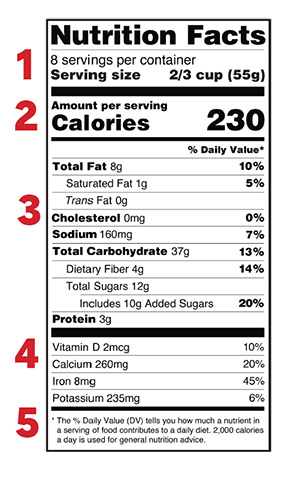
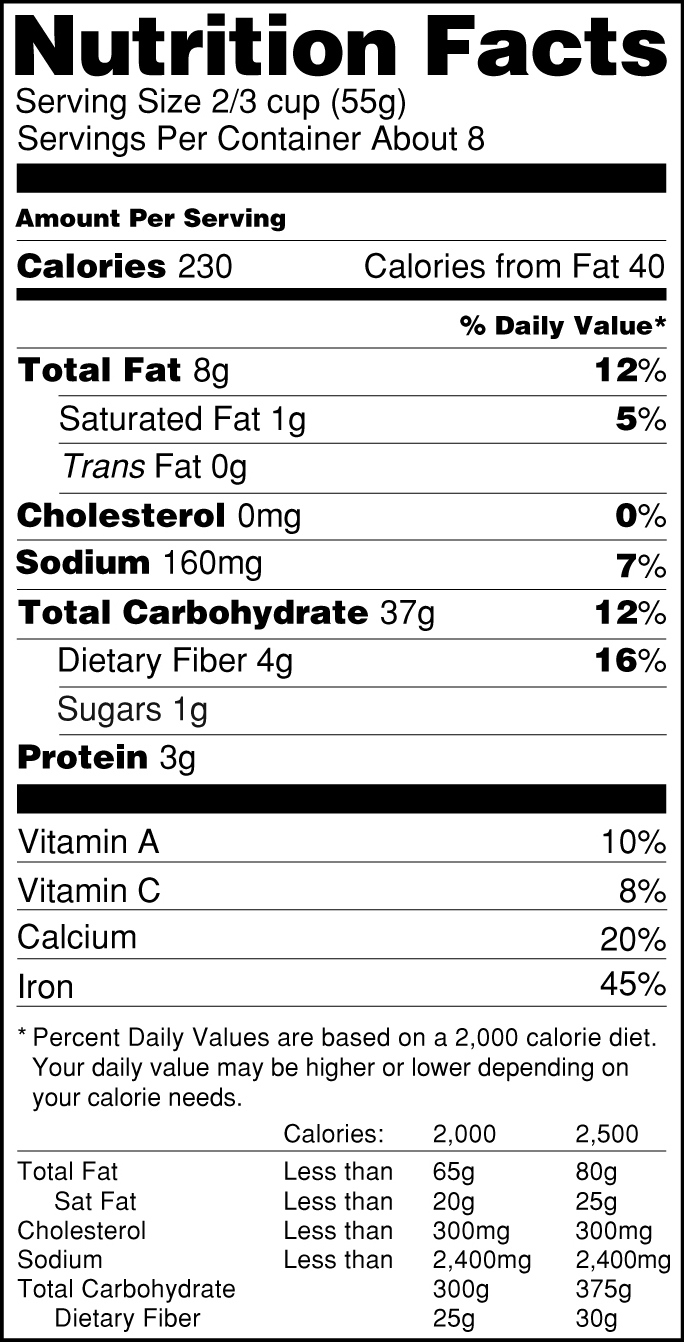

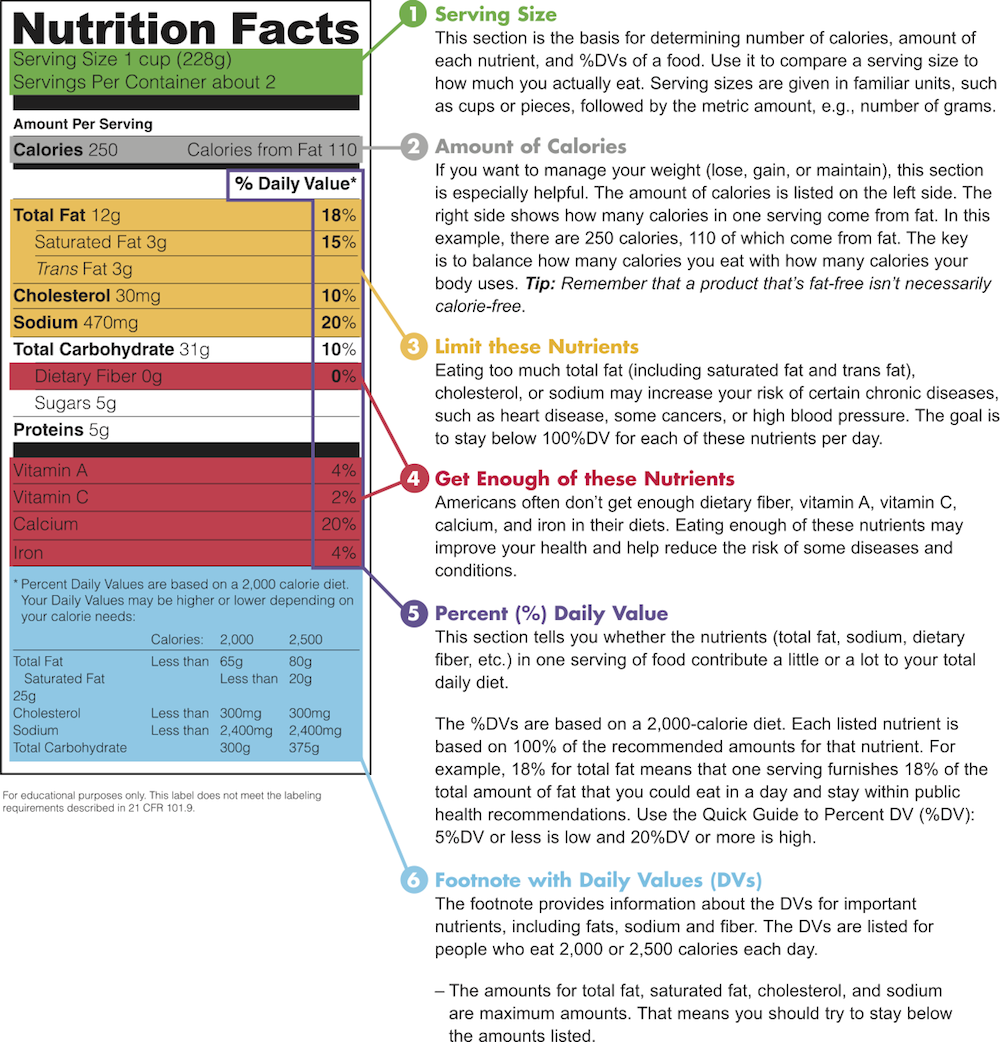
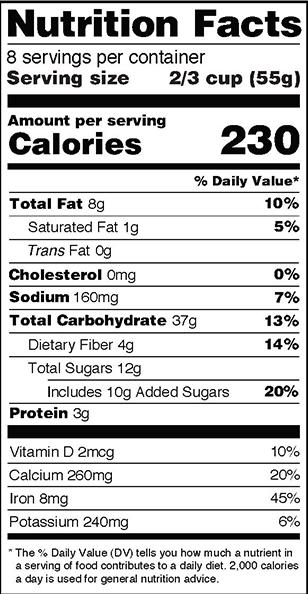



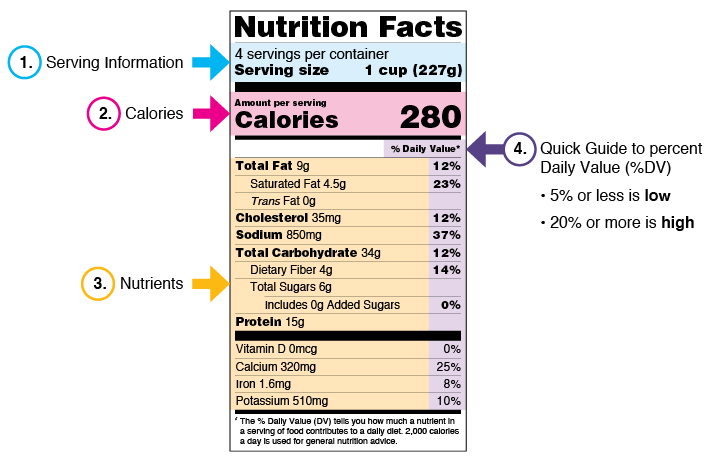


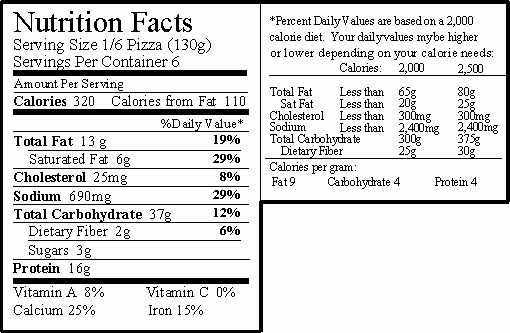
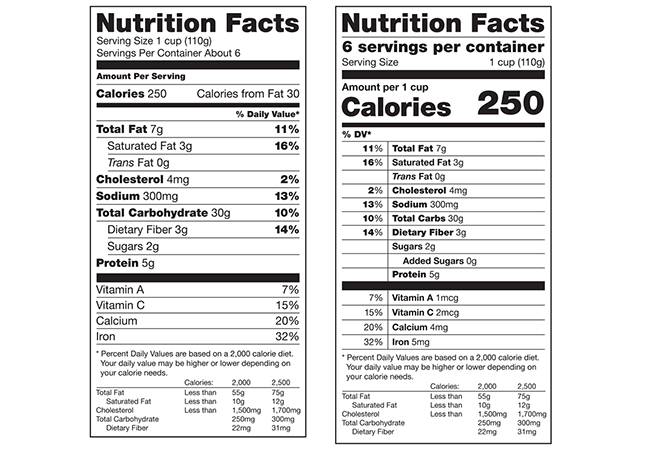
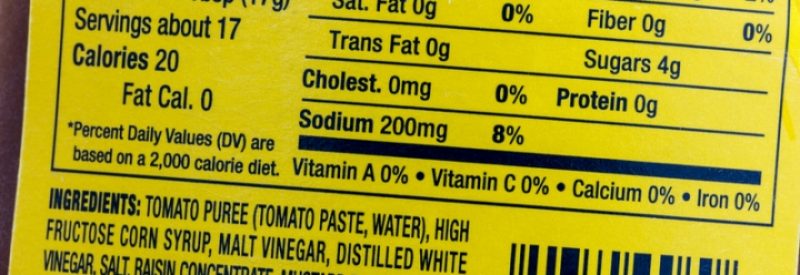


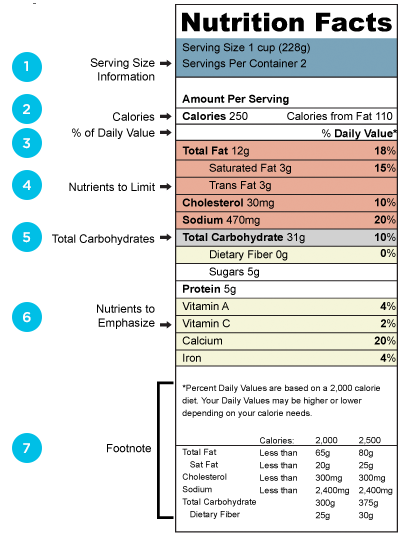

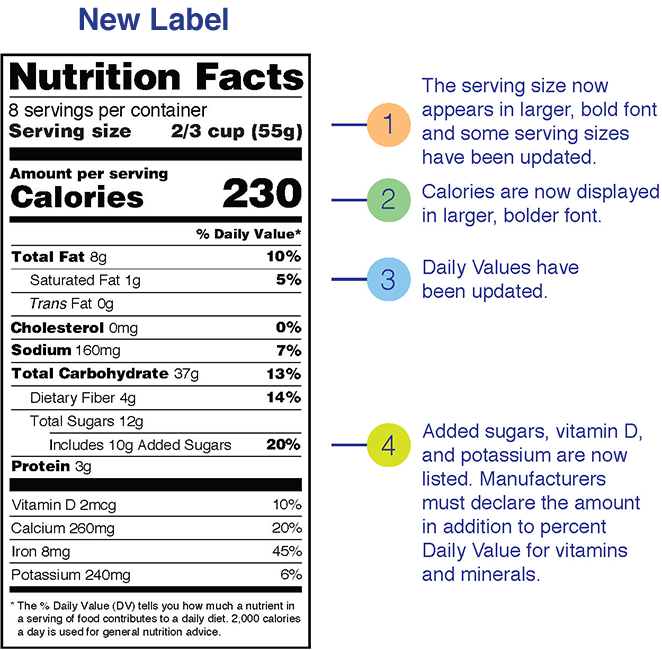
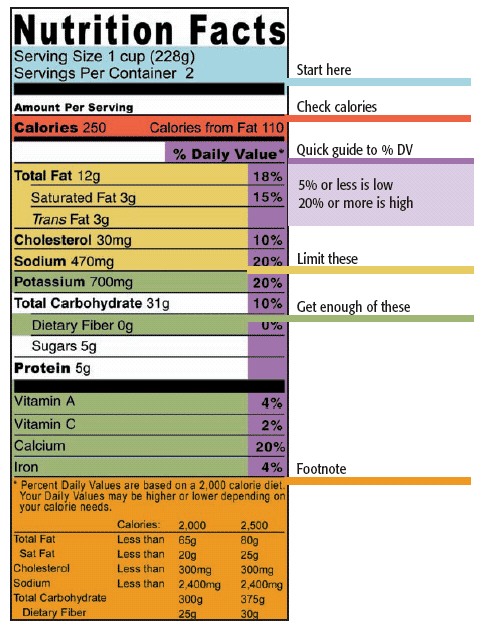
Post a Comment for "38 nutritional labels on food are based on a diet of"